afterLoad (456.16KB) (3.09ms)
afterInitialise (1.27MB) (34.58ms)
afterRoute (840.45KB) (10.12ms)
beforeRenderComponent com_tags (20.75KB) (216μs)
afterRenderComponent com_tags (1.64MB) (95.89ms)
afterDispatch (28.15KB) (1.3ms)
beforeRenderRawModule mod_articles_category (READ MORE...) (423.86KB) (11.58ms)
Before Access::preloadComponents (all components) (50.9KB) (1.47ms)
After Access::preloadComponents (all components) (103.05KB) (1.56ms)
Before Access::getAssetRules (id:8 name:com_content) (840B) (18μs)
After Access::getAssetRules (id:8 name:com_content) (7.05KB) (39μs)
afterRenderRawModule mod_articles_category (READ MORE...) (8KB) (106ms)
beforeRenderRawModule mod_custom (BOOST YOUR IMMUNE DEFENSE) (6.45KB) (33μs)
afterRenderRawModule mod_custom (BOOST YOUR IMMUNE DEFENSE) (3.8KB) (203μs)
beforeRenderRawModule mod_tags_popular (Search) (2.36KB) (15μs)
afterRenderRawModule mod_tags_popular (Search) (42.12KB) (139ms)
beforeRenderRawModule mod_custom (Get additionel and more detailed knowledge ) (816B) (28μs)
afterRenderRawModule mod_custom (Get additionel and more detailed knowledge ) (1.55KB) (47μs)
beforeRenderRawModule mod_custom (Overview of vitamins, minerals, and essential fatty acids) (768B) (11μs)
afterRenderRawModule mod_custom (Overview of vitamins, minerals, and essential fatty acids) (960B) (23μs)
beforeRenderRawModule mod_custom (Q10 goes by many names) (608B) (10μs)
afterRenderRawModule mod_custom (Q10 goes by many names) (928B) (18μs)
beforeRenderRawModule mod_custom (Check this before you buy a Q10 product) (752B) (9μs)
afterRenderRawModule mod_custom (Check this before you buy a Q10 product) (944B) (19μs)
beforeRenderRawModule mod_custom (Are you taking supplements) (736B) (9μs)
afterRenderRawModule mod_custom (Are you taking supplements) (1.03KB) (17μs)
beforeRenderRawModule mod_custom (Weight loss that works) (736B) (9μs)
afterRenderRawModule mod_custom (Weight loss that works) (1.03KB) (18μs)
beforeRenderRawModule mod_custom (Antiaging) (720B) (9μs)
afterRenderRawModule mod_custom (Antiaging) (912B) (17μs)
beforeRenderRawModule mod_menu (Are you getting enough vitamins and minerals?) (2.5KB) (11μs)
afterRenderRawModule mod_menu (Are you getting enough vitamins and minerals?) (22.39KB) (1.56ms)
beforeRenderRawModule mod_menu (The key to increased well-being) (736B) (22μs)
afterRenderRawModule mod_menu (The key to increased well-being) (17.83KB) (240μs)
beforeRenderRawModule mod_menu (Did you know.....) (720B) (15μs)
afterRenderRawModule mod_menu (Did you know.....) (25.52KB) (1.29ms)
beforeRenderRawModule mod_custom (Useful Links) (1.06KB) (16μs)
afterRenderRawModule mod_custom (Useful Links) (1.02KB) (36μs)
beforeRenderRawModule mod_custom (Chronic fatigue tied Alan to his bed but Q10 capsules saved him:) (244.28KB) (3.22ms)
afterRenderRawModule mod_custom (Chronic fatigue tied Alan to his bed but Q10 capsules saved him:) (1.06KB) (41μs)
beforeRenderModule mod_custom (Chronic fatigue tied Alan to his bed but Q10 capsules saved him:) (768B) (4μs)
afterRenderModule mod_custom (Chronic fatigue tied Alan to his bed but Q10 capsules saved him:) (1.3KB) (59μs)
beforeRenderRawModule mod_custom (Cholesterol-lowering without side effects:) (368B) (13μs)
afterRenderRawModule mod_custom (Cholesterol-lowering without side effects:) (1.06KB) (22μs)
beforeRenderModule mod_custom (Cholesterol-lowering without side effects:) (752B) (2μs)
afterRenderModule mod_custom (Cholesterol-lowering without side effects:) (1.28KB) (29μs)
beforeRenderModule mod_articles_category (READ MORE...) (20.82KB) (343μs)
afterRenderModule mod_articles_category (READ MORE...) (1.25KB) (39μs)
beforeRenderModule mod_custom (BOOST YOUR IMMUNE DEFENSE) (6.81KB) (13μs)
afterRenderModule mod_custom (BOOST YOUR IMMUNE DEFENSE) (1.28KB) (24μs)
beforeRenderModule mod_tags_popular (Search) (1.98KB) (11μs)
afterRenderModule mod_tags_popular (Search) (1.27KB) (21μs)
beforeRenderModule mod_custom (Get additionel and more detailed knowledge ) (1.17KB) (9μs)
afterRenderModule mod_custom (Get additionel and more detailed knowledge ) (1.3KB) (21μs)
beforeRenderModule mod_custom (Overview of vitamins, minerals, and essential fatty acids) (384B) (9μs)
afterRenderModule mod_custom (Overview of vitamins, minerals, and essential fatty acids) (1.31KB) (20μs)
beforeRenderModule mod_custom (Q10 goes by many names) (208B) (9μs)
afterRenderModule mod_custom (Q10 goes by many names) (1.27KB) (1.03ms)
beforeRenderModule mod_custom (Check this before you buy a Q10 product) (352B) (13μs)
afterRenderModule mod_custom (Check this before you buy a Q10 product) (1.28KB) (26μs)
beforeRenderModule mod_custom (Are you taking supplements) (352B) (10μs)
afterRenderModule mod_custom (Are you taking supplements) (1.28KB) (22μs)
beforeRenderModule mod_custom (Weight loss that works) (336B) (9μs)
afterRenderModule mod_custom (Weight loss that works) (1.27KB) (21μs)
beforeRenderModule mod_custom (Antiaging) (336B) (9μs)
afterRenderModule mod_custom (Antiaging) (3.77KB) (20μs)
beforeRenderModule mod_menu (Are you getting enough vitamins and minerals?) (2.13KB) (11μs)
afterRenderModule mod_menu (Are you getting enough vitamins and minerals?) (1.3KB) (20μs)
beforeRenderModule mod_menu (The key to increased well-being) (352B) (10μs)
afterRenderModule mod_menu (The key to increased well-being) (1.28KB) (19μs)
beforeRenderModule mod_menu (Did you know.....) (336B) (10μs)
afterRenderModule mod_menu (Did you know.....) (1.27KB) (19μs)
beforeRenderModule mod_custom (Useful Links) (1.44KB) (9μs)
afterRenderModule mod_custom (Useful Links) (1.27KB) (19μs)
beforeRenderRawModule mod_menu (Main Menu - English) (25.14KB) (697μs)
afterRenderRawModule mod_menu (Main Menu - English) (192.45KB) (3.51ms)
beforeRenderModule mod_menu (Main Menu - English) (720B) (5μs)
afterRenderModule mod_menu (Main Menu - English) (4.86KB) (60μs)
beforeRenderRawModule mod_languages (Sprogskift) (3.94KB) (19μs)
afterRenderRawModule mod_languages (Sprogskift) (22.56KB) (3.66ms)
beforeRenderModule mod_languages (Sprogskift) (720B) (6μs)
afterRenderModule mod_languages (Sprogskift) (5.31KB) (22μs)
beforeRenderRawModule mod_finder () (6.34KB) (12μs)
afterRenderRawModule mod_finder () (128.59KB) (2.33ms)
beforeRenderModule mod_finder () (704B) (4μs)
afterRenderModule mod_finder () (3.29KB) (33μs)
beforeRenderRawModule mod_custom () (6.62KB) (142μs)
afterRenderRawModule mod_custom () (22.64KB) (5.47ms)
beforeRenderModule mod_custom () (704B) (5μs)
afterRenderModule mod_custom () (1.23KB) (49μs)
beforeRenderRawModule mod_menu (Main Menu - English) (5.07KB) (113μs)
afterRenderRawModule mod_menu (Main Menu - English) (6.3KB) (7.8ms)
beforeRenderModule mod_menu (Main Menu - English) (720B) (3μs)
afterRenderModule mod_menu (Main Menu - English) (1.25KB) (51μs)
beforeRenderRawModule mod_languages (Sprogskift Mobil) (912B) (16μs)
afterRenderRawModule mod_languages (Sprogskift Mobil) (3.89KB) (668μs)
beforeRenderModule mod_languages (Sprogskift Mobil) (720B) (3μs)
afterRenderModule mod_languages (Sprogskift Mobil) (1.27KB) (29μs)
beforeRenderRawModule mod_finder () (2.3KB) (9μs)
afterRenderRawModule mod_finder () (6.29KB) (5.25ms)
beforeRenderModule mod_finder () (704B) (5μs)
afterRenderModule mod_finder () (1.23KB) (49μs)
beforeRenderRawModule mod_custom () (8.66KB) (189μs)
afterRenderRawModule mod_custom () (904B) (142μs)
beforeRenderModule mod_custom () (704B) (3μs)
afterRenderModule mod_custom () (2.43KB) (24μs)
beforeRenderRawModule mod_custom () (688B) (82μs)
afterRenderRawModule mod_custom () (896B) (94μs)
beforeRenderModule mod_custom () (704B) (2μs)
afterRenderModule mod_custom () (2.71KB) (21μs)
afterRender (256.47KB) (22.31ms)
| 1 x afterRenderRawModule mod_tags_popular (Search) (42.12KB) (29.81%) | 139.49ms |
| 1 x afterRenderRawModule mod_articles_category (READ MORE...) (8KB) (22.72%) | 106.29ms |
| 1 x afterRenderComponent com_tags (1.64MB) (20.5%) | 95.89ms |
| 1 x afterInitialise (1.27MB) (7.39%) | 34.58ms |
| 1 x afterRender (256.47KB) (4.77%) | 22.31ms |
| 1 x beforeRenderRawModule mod_articles_category (READ MORE...) (423.86KB) (2.48%) | 11.58ms |
| 1 x afterRoute (840.45KB) (2.16%) | 10.12ms |
| 1 x afterRenderRawModule mod_menu (Main Menu - English) (6.3KB) (1.67%) | 7.80ms |
| 1 x afterRenderRawModule mod_custom () (22.64KB) (1.17%) | 5.47ms |
| 1 x afterRenderRawModule mod_finder () (6.29KB) (1.12%) | 5.25ms |
| 1 x afterRenderRawModule mod_languages (Sprogskift) (22.56KB) (0.78%) | 3.66ms |
| 1 x afterRenderRawModule mod_menu (Main Menu - English) (192.45KB) (0.75%) | 3.51ms |
| 1 x beforeRenderRawModule mod_custom (Chronic fatigue tied Alan to his bed but Q10 capsules saved him:) (244.28KB) (0.69%) | 3.22ms |
| 1 x afterLoad (456.16KB) (0.66%) | 3.09ms |
| 1 x afterRenderRawModule mod_finder () (128.59KB) (0.5%) | 2.33ms |
| 1 x After Access::preloadComponents (all components) (103.05KB) (0.33%) | 1.56ms |
| 1 x afterRenderRawModule mod_menu (Are you getting enough vitamins and minerals?) (22.39KB) (0.33%) | 1.56ms |
| 1 x Before Access::preloadComponents (all components) (50.9KB) (0.31%) | 1.47ms |
| 1 x afterDispatch (28.15KB) (0.28%) | 1.30ms |
| 1 x afterRenderRawModule mod_menu (Did you know.....) (25.52KB) (0.27%) | 1.29ms |
| 1 x afterRenderModule mod_custom (Q10 goes by many names) (1.27KB) (0.22%) | 1.03ms |
| 1 x beforeRenderRawModule mod_menu (Main Menu - English) (25.14KB) (0.15%) | 697μs |
| 1 x afterRenderRawModule mod_languages (Sprogskift Mobil) (3.89KB) (0.14%) | 668μs |
| 1 x beforeRenderModule mod_articles_category (READ MORE...) (20.82KB) (0.07%) | 343μs |
| 1 x afterRenderRawModule mod_menu (The key to increased well-being) (17.83KB) (0.05%) | 240μs |
| 1 x beforeRenderComponent com_tags (20.75KB) (0.05%) | 216μs |
| 1 x afterRenderRawModule mod_custom (BOOST YOUR IMMUNE DEFENSE) (3.8KB) (0.04%) | 203μs |
| 1 x beforeRenderRawModule mod_custom () (8.66KB) (0.04%) | 189μs |
| 1 x beforeRenderRawModule mod_custom () (6.62KB) (0.03%) | 142μs |
| 1 x afterRenderRawModule mod_custom () (904B) (0.03%) | 142μs |
| 1 x beforeRenderRawModule mod_menu (Main Menu - English) (5.07KB) (0.02%) | 113μs |
| 1 x afterRenderRawModule mod_custom () (896B) (0.02%) | 94μs |
| 1 x beforeRenderRawModule mod_custom () (688B) (0.02%) | 82μs |
| 1 x afterRenderModule mod_menu (Main Menu - English) (4.86KB) (0.01%) | 60μs |
| 1 x afterRenderModule mod_custom (Chronic fatigue tied Alan to his bed but Q10 capsules saved him:) (1.3KB) (0.01%) | 59μs |
| 1 x afterRenderModule mod_menu (Main Menu - English) (1.25KB) (0.01%) | 51μs |
| 1 x afterRenderModule mod_custom () (1.23KB) (0.01%) | 49μs |
| 1 x afterRenderModule mod_finder () (1.23KB) (0.01%) | 49μs |
| 1 x afterRenderRawModule mod_custom (Get additionel and more detailed knowledge ) (1.55KB) (0.01%) | 47μs |
| 1 x afterRenderRawModule mod_custom (Chronic fatigue tied Alan to his bed but Q10 capsules saved him:) (1.06KB) (0.01%) | 41μs |
| 1 x After Access::getAssetRules (id:8 name:com_content) (7.05KB) (0.01%) | 39μs |
| 1 x afterRenderModule mod_articles_category (READ MORE...) (1.25KB) (0.01%) | 39μs |
| 1 x afterRenderRawModule mod_custom (Useful Links) (1.02KB) (0.01%) | 36μs |
| 1 x beforeRenderRawModule mod_custom (BOOST YOUR IMMUNE DEFENSE) (6.45KB) (0.01%) | 33μs |
| 1 x afterRenderModule mod_finder () (3.29KB) (0.01%) | 33μs |
| 1 x afterRenderModule mod_custom (Cholesterol-lowering without side effects:) (1.28KB) (0.01%) | 29μs |
| 1 x afterRenderModule mod_languages (Sprogskift Mobil) (1.27KB) (0.01%) | 29μs |
| 1 x beforeRenderRawModule mod_custom (Get additionel and more detailed knowledge ) (816B) (0.01%) | 28μs |
| 1 x afterRenderModule mod_custom (Check this before you buy a Q10 product) (1.28KB) (0.01%) | 26μs |
| 1 x afterRenderModule mod_custom () (2.43KB) (0.01%) | 24μs |
| 1 x afterRenderModule mod_custom (BOOST YOUR IMMUNE DEFENSE) (1.28KB) (0.01%) | 24μs |
| 1 x afterRenderRawModule mod_custom (Overview of vitamins, minerals, and essential fatty acids) (960B) (0%) | 23μs |
| 1 x beforeRenderRawModule mod_menu (The key to increased well-being) (736B) (0%) | 22μs |
| 1 x afterRenderRawModule mod_custom (Cholesterol-lowering without side effects:) (1.06KB) (0%) | 22μs |
| 1 x afterRenderModule mod_custom (Are you taking supplements) (1.28KB) (0%) | 22μs |
| 1 x afterRenderModule mod_languages (Sprogskift) (5.31KB) (0%) | 22μs |
| 1 x afterRenderModule mod_tags_popular (Search) (1.27KB) (0%) | 21μs |
| 1 x afterRenderModule mod_custom (Get additionel and more detailed knowledge ) (1.3KB) (0%) | 21μs |
| 1 x afterRenderModule mod_custom (Weight loss that works) (1.27KB) (0%) | 21μs |
| 1 x afterRenderModule mod_custom () (2.71KB) (0%) | 21μs |
| 1 x afterRenderModule mod_custom (Overview of vitamins, minerals, and essential fatty acids) (1.31KB) (0%) | 20μs |
| 1 x afterRenderModule mod_custom (Antiaging) (3.77KB) (0%) | 20μs |
| 1 x afterRenderModule mod_menu (Are you getting enough vitamins and minerals?) (1.3KB) (0%) | 20μs |
| 1 x afterRenderRawModule mod_custom (Check this before you buy a Q10 product) (944B) (0%) | 19μs |
| 1 x afterRenderModule mod_menu (The key to increased well-being) (1.28KB) (0%) | 19μs |
| 1 x afterRenderModule mod_menu (Did you know.....) (1.27KB) (0%) | 19μs |
| 1 x afterRenderModule mod_custom (Useful Links) (1.27KB) (0%) | 19μs |
| 1 x beforeRenderRawModule mod_languages (Sprogskift) (3.94KB) (0%) | 19μs |
| 1 x Before Access::getAssetRules (id:8 name:com_content) (840B) (0%) | 18μs |
| 1 x afterRenderRawModule mod_custom (Q10 goes by many names) (928B) (0%) | 18μs |
| 1 x afterRenderRawModule mod_custom (Weight loss that works) (1.03KB) (0%) | 18μs |
| 1 x afterRenderRawModule mod_custom (Are you taking supplements) (1.03KB) (0%) | 17μs |
| 1 x afterRenderRawModule mod_custom (Antiaging) (912B) (0%) | 17μs |
| 1 x beforeRenderRawModule mod_custom (Useful Links) (1.06KB) (0%) | 16μs |
| 1 x beforeRenderRawModule mod_languages (Sprogskift Mobil) (912B) (0%) | 16μs |
| 1 x beforeRenderRawModule mod_tags_popular (Search) (2.36KB) (0%) | 15μs |
| 1 x beforeRenderRawModule mod_menu (Did you know.....) (720B) (0%) | 15μs |
| 1 x beforeRenderRawModule mod_custom (Cholesterol-lowering without side effects:) (368B) (0%) | 13μs |
| 1 x beforeRenderModule mod_custom (BOOST YOUR IMMUNE DEFENSE) (6.81KB) (0%) | 13μs |
| 1 x beforeRenderModule mod_custom (Check this before you buy a Q10 product) (352B) (0%) | 13μs |
| 1 x beforeRenderRawModule mod_finder () (6.34KB) (0%) | 12μs |
| 1 x beforeRenderRawModule mod_custom (Overview of vitamins, minerals, and essential fatty acids) (768B) (0%) | 11μs |
| 1 x beforeRenderRawModule mod_menu (Are you getting enough vitamins and minerals?) (2.5KB) (0%) | 11μs |
| 1 x beforeRenderModule mod_tags_popular (Search) (1.98KB) (0%) | 11μs |
| 1 x beforeRenderModule mod_menu (Are you getting enough vitamins and minerals?) (2.13KB) (0%) | 11μs |
| 1 x beforeRenderRawModule mod_custom (Q10 goes by many names) (608B) (0%) | 10μs |
| 1 x beforeRenderModule mod_custom (Are you taking supplements) (352B) (0%) | 10μs |
| 1 x beforeRenderModule mod_menu (The key to increased well-being) (352B) (0%) | 10μs |
| 1 x beforeRenderModule mod_menu (Did you know.....) (336B) (0%) | 10μs |
| 3 x beforeRenderModule mod_custom () (704B) (0%) | 10μs |
| 1 x beforeRenderRawModule mod_custom (Check this before you buy a Q10 product) (752B) (0%) | 9μs |
| 1 x beforeRenderRawModule mod_custom (Are you taking supplements) (736B) (0%) | 9μs |
| 1 x beforeRenderRawModule mod_custom (Weight loss that works) (736B) (0%) | 9μs |
| 1 x beforeRenderRawModule mod_custom (Antiaging) (720B) (0%) | 9μs |
| 1 x beforeRenderModule mod_custom (Get additionel and more detailed knowledge ) (1.17KB) (0%) | 9μs |
| 1 x beforeRenderModule mod_custom (Overview of vitamins, minerals, and essential fatty acids) (384B) (0%) | 9μs |
| 1 x beforeRenderModule mod_custom (Q10 goes by many names) (208B) (0%) | 9μs |
| 1 x beforeRenderModule mod_custom (Weight loss that works) (336B) (0%) | 9μs |
| 2 x beforeRenderModule mod_finder () (704B) (0%) | 9μs |
| 1 x beforeRenderRawModule mod_finder () (2.3KB) (0%) | 9μs |
| 1 x beforeRenderModule mod_custom (Antiaging) (336B) (0%) | 9μs |
| 1 x beforeRenderModule mod_custom (Useful Links) (1.44KB) (0%) | 9μs |
| 2 x beforeRenderModule mod_menu (Main Menu - English) (720B) (0%) | 8μs |
| 1 x beforeRenderModule mod_languages (Sprogskift) (720B) (0%) | 6μs |
| 1 x beforeRenderModule mod_custom (Chronic fatigue tied Alan to his bed but Q10 capsules saved him:) (768B) (0%) | 4μs |
| 1 x beforeRenderModule mod_languages (Sprogskift Mobil) (720B) (0%) | 3μs |
| 1 x beforeRenderModule mod_custom (Cholesterol-lowering without side effects:) (752B) (0%) | 2μs |
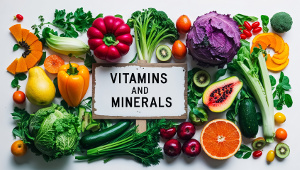 When cells convert the calories from food into energy, a variety of B vitamins, vitamin C, iron, magnesium, zinc, and Q10 are needed. This also means that a deficiency in one or more of these substances can result in mental and physical fatigue to a greater or lesser extent. The impaired energy metabolism of the cells also increases the risk of mood swings, concentration difficulty, infections, and other diseases. Modern lifestyle, ageing processes, medications, and other factors cause serious deficiencies, but these deficiencies can be corrected with help from dietary changes and relevant supplements.
When cells convert the calories from food into energy, a variety of B vitamins, vitamin C, iron, magnesium, zinc, and Q10 are needed. This also means that a deficiency in one or more of these substances can result in mental and physical fatigue to a greater or lesser extent. The impaired energy metabolism of the cells also increases the risk of mood swings, concentration difficulty, infections, and other diseases. Modern lifestyle, ageing processes, medications, and other factors cause serious deficiencies, but these deficiencies can be corrected with help from dietary changes and relevant supplements.









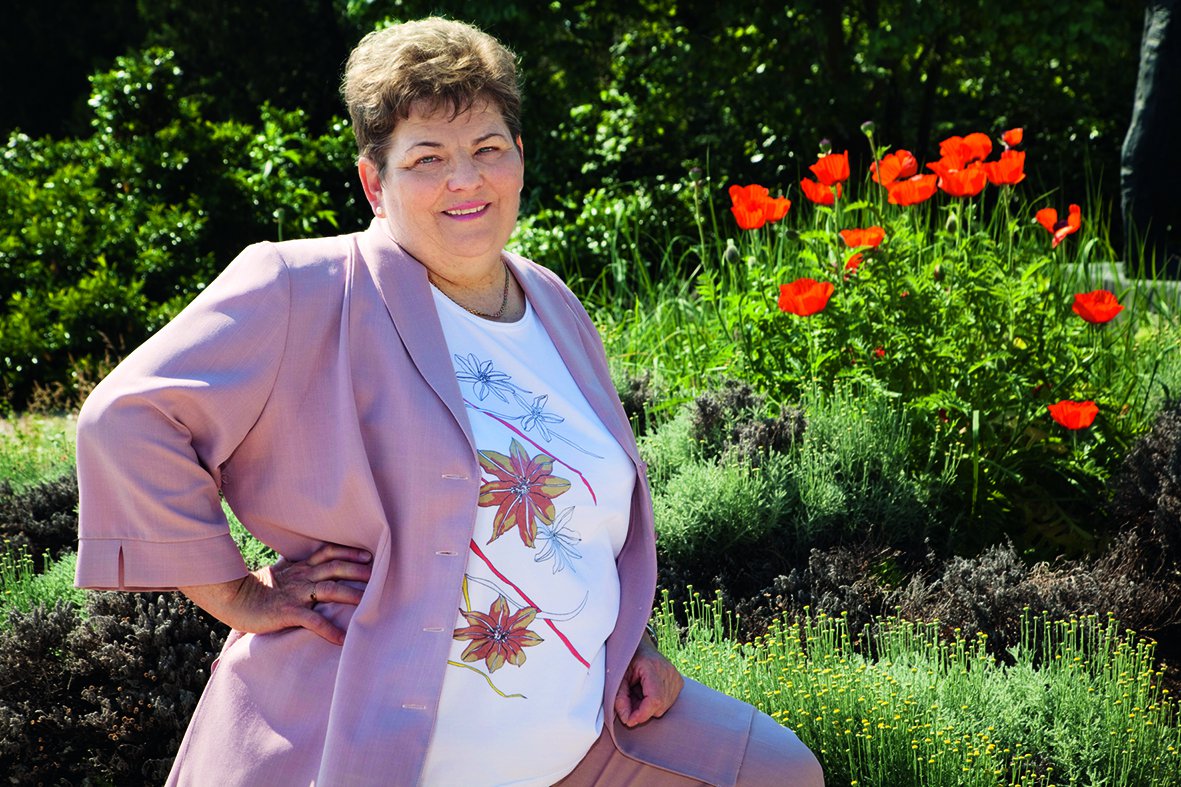 My debilitating fatigue no longer has me in a stronghold, I don’t get exhausted like I used to, and I have more energy than I have had in ages,” says Irén Szabó. Even her heart functions better as a result of taking her daily Q10 capsules.
My debilitating fatigue no longer has me in a stronghold, I don’t get exhausted like I used to, and I have more energy than I have had in ages,” says Irén Szabó. Even her heart functions better as a result of taking her daily Q10 capsules. “I am rarely tired anymore. I have much more energy for my job, which can be quite demanding, and I am even able to make the most of my evenings now,” says Elizabeth Power, a professional show jumper who also runs an equestrian with her parents.
“I am rarely tired anymore. I have much more energy for my job, which can be quite demanding, and I am even able to make the most of my evenings now,” says Elizabeth Power, a professional show jumper who also runs an equestrian with her parents. “One of the things I have noticed is that I have much more energy. I run as fast as guys who are 30 years younger than I am,” says 62-year old Lucza Lajos. A friend advised him to try a combination of selenium and Q10 and the product worked wonders for the retired engineer and mechanic.
“One of the things I have noticed is that I have much more energy. I run as fast as guys who are 30 years younger than I am,” says 62-year old Lucza Lajos. A friend advised him to try a combination of selenium and Q10 and the product worked wonders for the retired engineer and mechanic.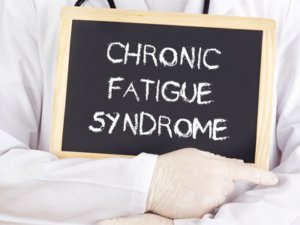 Perhaps so. More and more studies reveal that it helps to take large quantities of
Perhaps so. More and more studies reveal that it helps to take large quantities of  Magnesium is an essential mineral. An adult contains around 20-30 grams of magnesium. Approximately half of the body's magnesium supply is stored in the bones. The rest is distributed in the muscles, liver, nerve tissue and other soft tissues. Magnesium is mainly found inside the cells where it supports over 300 different enzymatic processes.
Magnesium is an essential mineral. An adult contains around 20-30 grams of magnesium. Approximately half of the body's magnesium supply is stored in the bones. The rest is distributed in the muscles, liver, nerve tissue and other soft tissues. Magnesium is mainly found inside the cells where it supports over 300 different enzymatic processes.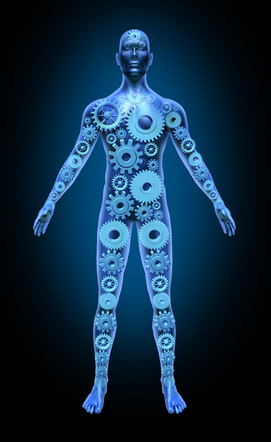 The cellular energy turnover takes place inside some small powerhouses called mitochondria. The condition of these tiny structures is determining for our energy levels and health. That is why it is vital that the mitochondria are adequately supplied with all the necessary nutrients. Q10 and magnesium play a particularly important role.
The cellular energy turnover takes place inside some small powerhouses called mitochondria. The condition of these tiny structures is determining for our energy levels and health. That is why it is vital that the mitochondria are adequately supplied with all the necessary nutrients. Q10 and magnesium play a particularly important role.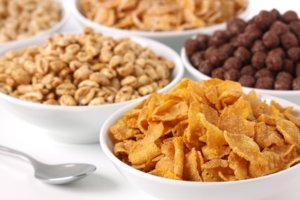
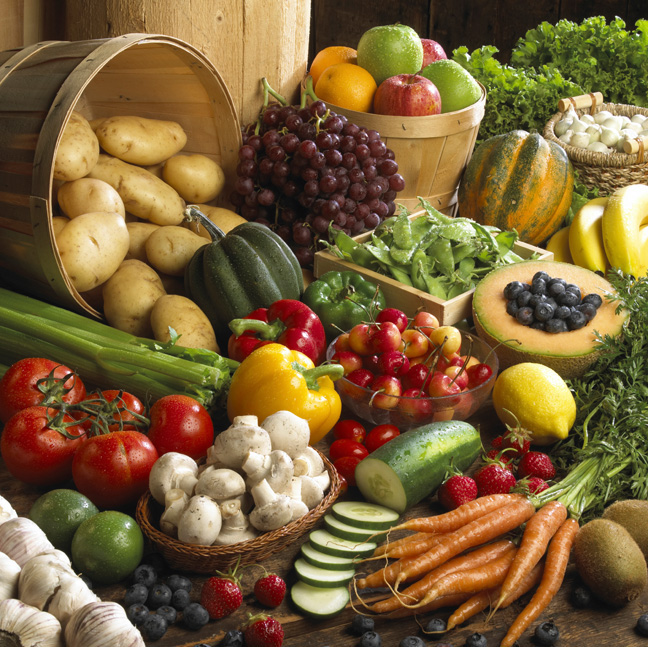 Vitamin C is also known as ascorbic acid and L-ascorbic acid. Most animals are able to synthesise vitamin C by means of a stepwise, enzymatic conversion of glucose (dextrose). However, humans, apes, guinea pigs, and certain other animals have lost this ability during evolution. The largest concentrations of vitamin C are found in the white cells of the immune defence, the pancreas, the testicles, and the ovaries. Vitamin C is water-soluble and as it is not stored in the body, we depend on regular intake of the nutrient. Vitamin C is destroyed by light, heat, boiling, freezing, preservation, and storage (including winter storage of vegetables and fruit).
Vitamin C is also known as ascorbic acid and L-ascorbic acid. Most animals are able to synthesise vitamin C by means of a stepwise, enzymatic conversion of glucose (dextrose). However, humans, apes, guinea pigs, and certain other animals have lost this ability during evolution. The largest concentrations of vitamin C are found in the white cells of the immune defence, the pancreas, the testicles, and the ovaries. Vitamin C is water-soluble and as it is not stored in the body, we depend on regular intake of the nutrient. Vitamin C is destroyed by light, heat, boiling, freezing, preservation, and storage (including winter storage of vegetables and fruit). "After about one week of taking the Q10 supplement I could feel a huge difference," says 23-year old Alan Piccini, who has been suffering from extreme fatigue and muscle aches ever since he was a child.
"After about one week of taking the Q10 supplement I could feel a huge difference," says 23-year old Alan Piccini, who has been suffering from extreme fatigue and muscle aches ever since he was a child. “Taking capsules with co-enzyme Q10 has freed me of the severe side effects of my cholesterol lowering medicine,” Mrs Franken explains.
“Taking capsules with co-enzyme Q10 has freed me of the severe side effects of my cholesterol lowering medicine,” Mrs Franken explains.